Hey there, curious minds! Today, we’re diving into the world of vitamin C and exploring some amazing fruits and vegetables packed with this powerful nutrient. We know it might sound a bit sciencey, but don’t worry, we will make it easy to understand.
This blog post will focus on something cool: vitamin C fruits and vegetables. Yep, you heard it right! These are the foods that can help keep you healthy and strong. But before we get into the names of these superstar fruits and veggies, let’s first understand what vitamin C is and why it’s so important.
35 Fruits Name In English And Hindi
| Serial Number | Fruits picture | English Fruits Name | Hindi Fruits Name |
| 1 |  | Orange | अरंग |
| 2 |  | Lemon | नींबू |
| 3 | 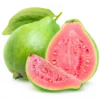 | Guava | अमरूद |
| 4 |  | Mango | आम |
| 5 | 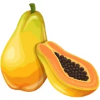 | Papaya | पपीता |
| 6 |  | Strawberry | स्ट्रॉबेरी |
| 7 | 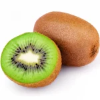 | Kiwi | कीवी |
| 8 |  | Pineapple | अनानास |
| 9 |  | Bell Peppers | शिमला मिर्च |
| 10 |  | Broccoli | ब्रोकोली |
| 11 | 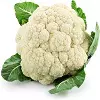 | Cauliflower | फूल गोभी |
| 12 |  | Spinach | पालक |
| 13 | 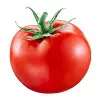 | Tomato | टमाटर |
| 14 | 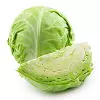 | Cabbage | गोभी |
| 15 |  | Kiwifruit | कीवीफल |
| 16 |  | Acerola Cherry | असरोला चेरी |
| 17 |  | Lychee | लीची |
| 18 | 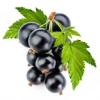 | Blackcurrant | काला करेंट |
| 19 |  | Cantaloupe | कैंटलोप |
| 20 | 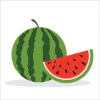 | Watermelon | तरबूज |
| 21 | 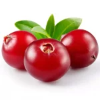 | Cranberries | क्रैनबेरीस |
| 22 | 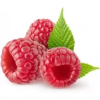 | Raspberries | रैसबेरीस |
| 23 | 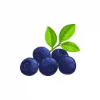 | Blueberries | ब्लूबेरीस |
| 24 | 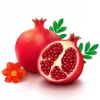 | Pomegranate | अनार |
| 25 |  | Raspberry | रस्बेरी |
| 26 | 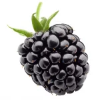 | Blackberry | ब्लैकबेरी |
| 27 | 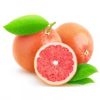 | Grapefruit | ग्रेपफ्रूट |
| 28 |  | Lemon | नींबू |
| 29 |  | Lime | नीबू |
| 30 |  | Clementine | दरबारी नारंगी |
| 31 |  | Tangerine | किन्नू |
| 32 |  | Pomelo | चकोतरा |
| 33 | 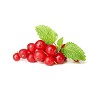 | Red Currant | लाल करेंट |
| 34 | 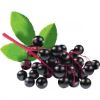 | Elderberry | एल्डरबेरी |
| 35 |  | Kiwano | हॉर्नेड मेलॉन |
The Impact of Cooking on Vitamin C: How Heat Alters Nutrient Content
Yes, cooking can affect vitamin C content in foods. Vitamin C, also known as ascorbic acid, is sensitive to immediate eat, light, and oxygen, and it can be easily destroyed under certain cooking conditions. The extent to which vitamin C is affected during cooking depends on several factors:
- Heat: High temperatures, such as boiling, can cause the breakdown of vitamin thanking at high temperatures, leading to significant losses.
- Cooking Method: The method of cooking matters. Boiling vegetables in water, for example, can result in substantial vitamin C loss because the vitamin can leach into the cooking water. Steaming or microwaving vegetables with minimal water may help preserve more vitamins.
- Exposure to Air: Vitamin C is sensitive to oxygen exposure. Cutting, chopping, or slicing fruits and vegetables exposes their inner parts to air, leading to vitamin C degradation. It’s best to immediately consume freshly cut or prepared fruits and vegetables or store them in airtight containers in the refrigerator.
- Cooking Time: Shorter cooking times generally result in less vitamin C loss. Quick stir-frying or blanching can help retain more vitamins than long cooking durations.
- Acidic Ingredients: Adding acidic ingredients like lemon juice or vinegar to foods while cooking can help stabilize vitamin C and reduce its degradation.
- Food Type: Some foods naturally contain more stable forms of vitamin C, while others are more sensitive. Citrus fruits, for example, are relatively stable sources of vitamin C, while leafy greens and bell peppers are more sensitive.
The Vital Role of Vitamin C in Health and Wellness
Vitamin C, also known as ascorbic acid, is important in the human body for various reasons. Here are some key reasons why vitamin C is important:
- Antioxidant Protection: Vitamin C is a potent antioxidant that helps protect the body from oxidative stress caused by free radicals. Free radicals are unstable molecules that can damage cells, DNA, and tissues, leading to various diseases and ageing. Vitamin C helps neutralize these harmful molecules.
- Boosts the Immune System: Vitamin C is well-known for supporting the immune system. It helps stimulate the production of white blood cells, which is crucial for fighting infections. Adequate vitamin C intake can reduce the duration and severity of common colds and other illnesses.
- Collagen Production: Vitamin C plays a vital role in the synthesis of collagen, a protein that is essential for the health of skin, connective tissues, and blood vessels. Collagen provides structure and elasticity to the skin, promotes wound healing, and helps maintain healthy gums and teeth.
- Wound Healing: Vitamin C is necessary for producing collagen and other proteins involved in tissue repair. It helps the body heal wounds, cuts, and injuries by supporting new skin and scar tissue formation.
- Iron Absorption: Vitamin C enhances the absorption of non-heme iron (the type of iron found in plant-based foods) from the digestive tract. This is particularly important for individuals who follow a vegetarian or vegan diet, as non-heme iron absorption can be less efficient than heme iron absorption (found in animal products).
- Cardiovascular Health: Some studies suggest vitamin C protects against heart disease. It may help reduce the risk of developing high blood pressure, lower LDL (bad) cholesterol levels, and improve overall heart health.
- Eye Health: Vitamin C is associated with a reduced risk of age-related macular degeneration (AMD), a leading cause of vision loss in older adults. It may help protect the eyes from damage caused by oxidative stress.
- Antihistamine Properties: Vitamin C can act as a natural antihistamine, helping to alleviate allergy symptoms by reducing histamine levels in the body.
- Skin Health: The antioxidant properties of vitamin C make it beneficial for skin health. It can help protect the skin from UV radiation, reduce the appearance of fine lines and wrinkles, and promote a more youthful complexion.
- Overall Health: Vitamin C is involved in various metabolic processes and the functioning of many enzymes in the body. It supports the overall health and well-being of individuals.
The Consequences of Vitamin C Deficiency: Risks of Low Intake
Low vitamin C intake can lead to several health risks and deficiencies, as this essential nutrient is vital in various bodily functions. Here are some of the risks associated with low vitamin C intake:
- Scurvy: Scurvy is a severe vitamin C deficiency disease. Its symptoms include weakness, fatigue, muscle pain, joint pain, swollen and bleeding gums, skin rashes, and slow wound healing. If left untreated, scurvy can be life-threatening.
- Weakened Immune System: Vitamin C is crucial for a well-functioning immune system. A deficiency can impair the body’s ability to fight off infections, making individuals more susceptible to illnesses like colds and respiratory infections.
- Impaired Wound Healing: Vitamin C is essential for collagen synthesis and healing. Low vitamin C levels can lead to delayed wound healing, potentially resulting in chronic, non-healing wounds.
- Skin Issues: Inadequate vitamin C intake can contribute to skin problems such as dryness, premature ageing, and a higher risk of bruising and skin discolouration.
- Anaemia: Vitamin C enhances the absorption of non-heme iron from plant-based sources. A deficiency in vitamin C can hinder iron absorption, potentially leading to iron deficiency anaemia.
- Fatigue and Weakness: Low levels of vitamin C can cause fatigue, weakness, and a general feeling of malaise due to its role in energy production and overall vitality.
- Bone Health: Vitamin C forms and maintains healthy bones and connective tissues. A deficiency can increase the risk of bone-related issues, such as osteoporosis.
- Increased Risk of Chronic Diseases: Chronic vitamin C deficiency may increase the risk of chronic diseases like cardiovascular disease, certain cancers, and neurodegenerative diseases.
- Poor Dental Health: Vitamin C deficiency can lead to gum disease, loose teeth, and increased susceptibility to dental infections.
- Mood Disorders: Some studies suggest a link between low vitamin C levels and an increased risk of mood disorders like depression. Vitamin C is involved in the synthesis of neurotransmitters like serotonin.
Recommended Daily Intake of Vitamin C
He recommended daily vitamin C intake, also known as ascorbic acid, which can vary depending on age, gender, and individual health needs. However, here are some general guidelines for daily vitamin C intake:
1. Adults (18 years and older): The Recommended Dietary Allowance (RDA) for vitamin C in adults is typically set at 65 to 90 milligrams per day.
2. Pregnant and Nursing Women: Pregnant and breastfeeding women may require higher levels of vitamin C. The RDA for pregnant women is around 85 milligrams per day, and for breastfeeding women, it is around 120 milligrams per day.
3. Children: The vitamin C needs of children vary with age. Here are some approximate RDAs for different age groups:
- Infants (0-6 months): 40 milligrams per day
- Infants (7-12 months): 50 milligrams per day
- Children (1-3 years): 15-20 milligrams per day
- Children (4-8 years): 25-30 milligrams per day
- Children (9-13 years): 45-50 milligrams per day
- Adolescents (14-18 years): 65-75 milligrams per day
It’s important to note that these are general recommendations, and individual needs can vary. Factors like illness, smoking, exposure to environmental toxins, and certain medical conditions may increase the need for vitamin C. It’s also worth mentioning that vitamin C is water-soluble, which means the body doesn’t store it for an extended period. Therefore, you need to consume it regularly through your diet or supplements.
The best way to meet your vitamin C needs is to consume a balanced diet of fruits and vegetables. Citrus fruits (oranges, lemons, grapefruits), strawberries, kiwi, bell peppers, broccoli, and spinach are excellent sources of vitamin C. Suppose you have specific concerns about your vitamin C intake or have a medical condition that affects your nutrient absorption. In that case, it’s advisable to consult with a healthcare professional or a registered dietitian for personalized recommendations.
Top Vitamin C-Rich Foods to Boost Your Immunity
Certainly! Here’s a list of 20 fruits rich in vitamin C, along with brief explanations of each: Oranges are perhaps the most well-known source of vitamin C. They are delicious and provide a significant dose of this essential nutrient.
- Strawberries: These vibrant red berries are packed with vitamin C and antioxidants, making them a healthy addition to your diet.
- Kiwi: Kiwi is a small, green fruit with a potent vitamin C content. It’s also a good source of dietary fibre.
- Guava: Guava is a tropical fruit with one of the highest concentrations of vitamin C. Eating just one guava can provide more than your daily recommended intake of vitamin C.
- Papaya: Papaya is not only rich in vitamin C but also contains an enzyme called papain, which aids in digestion.
- Mangoes: These sweet, juicy fruits are a good vitamin C and vitamin A source, which is important for healthy vision.
- Pineapple: Pineapple is another tropical fruit with a dose of vitamin C and a unique and refreshing flavour.
- Watermelon: This hydrating fruit contains moderate amounts of vitamin C and is perfect for staying cool during hot weather.
- Cantaloupe: Cantaloupe, also known as muskmelon, is rich in vitamin C and beta-carotene, a precursor to vitamin A.
- Grapefruit: Grapefruit is known for its tart flavour and vitamin C content. It also contains other beneficial compounds like antioxidants and fibre.
- Lemon: Lemons are a citrus fruit known for their high vitamin C content. They are often used for their juice in cooking and beverages.
- Lime: Limes are similar to lemons and provide good vitamin C. They add a zesty flavour to many dishes and drinks.
- Clementines: These small citrus fruits are easy to peel and make for a convenient, vitamin C-rich snack.
- Tangerines: Tangerines are another type of citrus fruit with a sweet, tangy taste and a good dose of vitamin C.
- Dragon Fruit: This exotic fruit, also known as pitaya, is visually appealing and contains vitamin C and other essential nutrients.
- Acerola Cherry: Acerola cherries are renowned for their exceptionally high vitamin C content, often exceeding 1000 mg per 100 grams.
- Raspberries: Raspberries are a berry known for their vitamin C content, dietary fibre, and antioxidants.
- Blackberries: Blackberries are another berry rich in vitamin C and fibre, making them a nutritious addition to your diet.
- Blueberries: Blueberries are packed with antioxidants and vitamin C, supporting immune health and overall well-being.
- Goji Berries: These small, red berries are often considered a superfood due to their high vitamin C content and various health benefits.
Top 10 Vitamin C-Rich Fruits
- Oranges: Oranges are well-known for their high vitamin C content. They are not only delicious but also packed with this essential nutrient.
- Kiwi: Kiwifruit is a small, green fruit incredibly rich in vitamin C. It provides more vitamin C per serving than most other fruits.
- Strawberries: Strawberries are sweet and juicy and a great source of vitamin C. They are a popular addition to various dishes and snacks.
- Guava: Guava is a tropical fruit that is exceptionally high in vitamin C. It can provide several times the daily recommended intake of vitamin C in a single serving.
- Papaya: Papaya is a tropical fruit that contains a substantial amount of vitamin C, along with other beneficial nutrients like vitamin A and folate.
- Mangoes: Mangoes, another tropical favourite, offer a good dose of vitamin C. They are not only tasty but also nutritious.
- Pineapples: Pineapples are a tangy and refreshing fruit that provides vitamin C and other vitamins and minerals.
- Grapefruit: Both red and white varieties are known for their vitamin C content. They also contain antioxidants that can benefit your health.
- Lemon: Lemons are sour but incredibly high in vitamin C. They are often used to add flavour to dishes and beverages.
- Kiwifruit: Kiwifruit is a small, green fruit that is incredibly rich in vitamin C. It provides more vitamin C per serving than most other fruits.
10 Vitamin C-Rich Vegetables to Boost Your Health
- Bell Peppers: Bell peppers, especially the red ones, are excellent sources of vitamin C. They can be eaten raw in salads or cooked in various dishes.
- Broccoli: Broccoli is a cruciferous vegetable loaded with vitamin C. It’s best when lightly cooked to preserve its nutritional value.
- Brussels Sprouts: Brussels sprouts are high in vitamin C and provide fibre and other essential nutrients.
- Kale: Kale is a leafy green vegetable with a substantial vitamin C. It’s a versatile ingredient for salads, smoothies, and cooked dishes.
- Spinach: Spinach is another leafy green with vitamin C, iron, and other vitamins and minerals.
- Tomatoes: Tomatoes are a good source of vitamin C and are used in various culinary preparations, from salads to sauces.
- Cauliflower: Cauliflower contains vitamin C and is often used as a low-carb alternative in various recipes.
- Cabbage: Cabbage, in both red and green varieties, provides vitamin C and can be used in salads, slaws, and stir-fries.
- Potatoes: Potatoes, particularly when eaten with their skin, are a source of vitamin C. They are a staple in many diets.
- Snow Peas: Snow peas are a type of pea that is rich in vitamin C and can be enjoyed as a crunchy snack or in stir-fries.
Conclusion
In conclusion, we’ve learned a lot about vitamin C fruits and vegetables named in this blog post. We talked about many tasty foods that are packed with vitamin C. Some of the vitamin C fruits and vegetables names we discussed are oranges, strawberries, broccoli, and bell peppers.
Vitamin C is super important for our bodies. It helps keep us healthy by fighting off sickness and helping our skin, bones, and teeth stay strong. So, eating plenty of vitamin C fruits and vegetables daily is a good idea.
Remember, you can find vitamin C in many yummy foods, so try to include them in your meals. Whether you enjoy munching on oranges, adding strawberries to your cereal, or having colourful bell peppers in your salad, these vitamin C fruits and vegetables can help you stay strong and healthy.
What fruit is highest in vitamin C?
The fruit highest in vitamin C is the kiwi. It contains even more vitamin C than oranges!
What fruits and vegetables are high in vitamin C?
Many fruits and vegetables are high in vitamin C. Some examples include oranges, strawberries, broccoli, bell peppers, kiwi, and guava.
What are 4 fruits rich in vitamin C?
Four fruits rich in vitamin C are oranges, strawberries, kiwi, and guava.
Is carrot rich in vitamin C?
Carrots contain a little vitamin C, but they are not as rich as some other fruits and vegetables.
Do tomatoes have vitamin C?
Yes, tomatoes do have vitamin C, but they are not as high in vitamin C as some fruits like oranges or strawberries.
How much vitamin C is in tomatoes?
On average, a medium-sized tomato contains about 16 milligrams of vitamin C.
Are bananas high in vitamin C?
No, bananas are not very high in vitamin C. They contain a small amount of it.
Does potato have vitamin C?
Yes, potatoes do have vitamin C, but most of it is in the skin. If you eat the skin, you’ll get more vitamin C.
Are apples high in vitamin C?
Apples contain a small amount of vitamin C but are not considered high in vitamin C compared to other fruits.
Does papaya have vitamin C?
Yes, papaya is rich in vitamin C. It’s a great fruit for your daily vitamin C dose.
How much vitamin C should you have daily?
Most adults’ recommended daily amount of vitamin C is around 65 to 90 milligrams.
What vitamin is in bananas?
Bananas are a good source of vitamin B6 and vitamin B5, also known as pyridoxine and pantothenic acid.
What drinks are high in vitamin C?
Drinks high in vitamin C include orange, grapefruit, and fruit smoothies made with vitamin C-rich fruits.
Is it OK to eat 2 bananas a day?
Eating 2 bananas a day is generally okay as part of a balanced diet. They provide important nutrients and energy, but remember to vary your fruit intake for a wider range of nutrients.

Balaji KVR, a passionate botanist and plant enthusiast with a strong academic background in plant biology. My journey at Botany Lane Greenhouse has been nothing short of exhilarating. Here, I delve deep into the world of plants, conducting extensive research, identifying unique species, and ensuring their optimal growth.
My expertise extends to propagation techniques, disease management, and meticulous plant care. I’m dedicated to creating the perfect environment for plants, focusing on maintaining precise conditions and utilizing innovative methods. Beyond my green endeavors, I actively engage in educational initiatives, workshops, and tours, aiming to foster a deeper understanding and love for the fascinating botanical realm.


